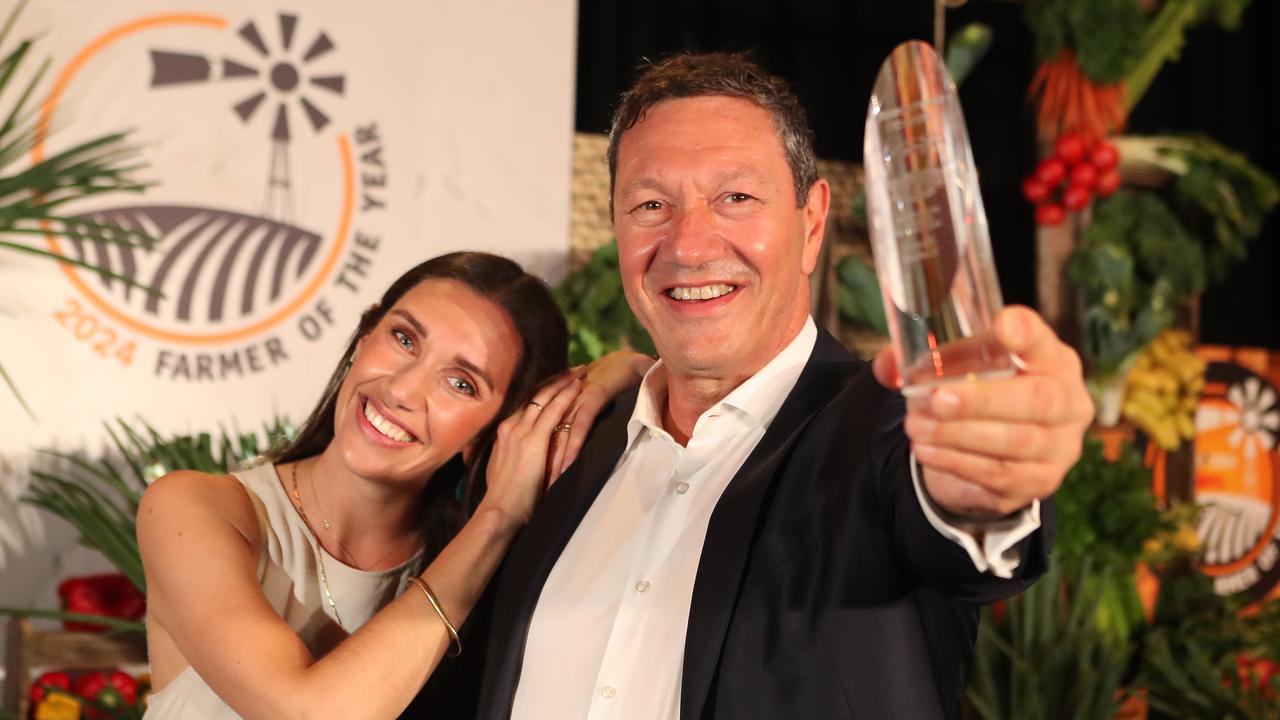The Weekly Times Coles 2022 Farmer of the Year Awards: Horticulture category finalists
With a focus on innovation, sustainability and persistence, these family-led horticultural operations have skyrocketed to the top of their industry.
These three family-led horticultural operations have been named finalists in The Weekly Times Coles 2022 Farmer of the Year awards in the horticulture category due to their innovations, persistence and focus on sustainability.
Stay tuned for the announcement of the six category award recipients and overall winner on Friday 24 February.
Meet the rest of the finalists here.
DONOVAN FAMILY
DONOVAN FAMILY INVESTMENTS
BUNDABERG, QLD
Holy guacamole. The Donovan family has turned the art form of avocado farming into, pardon the pun, a smash hit.
The family, from Bundaberg in central Queensland, operate Donovan Family Investments, which has blossomed from humble beginnings and a small 40-hectare orchard in the Sunshine Coast hinterland in 1991 into one of the biggest producers of avocados in the nation.
Through a targeted growth strategy centred on the ideals of dedication, innovation and sustainability, the Donovans now farm 110,000 trees across 650 hectares producing a whopping 6000 tonnes of avocados annually.
If you think that’s nuts, they also have 30,000 macadamia trees and growth of the business has spawned offshoots including marketing arm The Avolution, founded a decade ago, which exports 20 per cent of their product to South East Asia and the Middle East, and Horti-IT, which implements technology on the Donovans’ own farm and for about 20 other farmer clients a year.
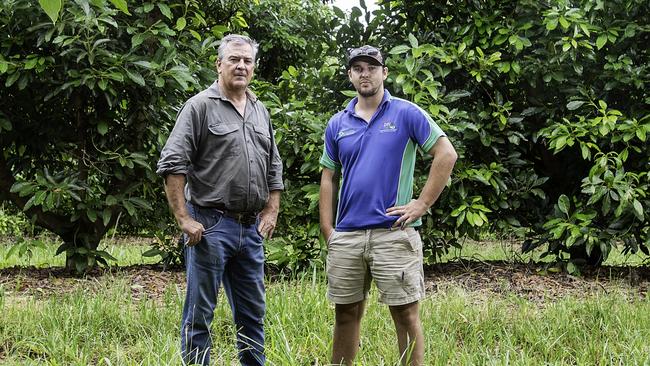
Lachlan Donovan, who works in the business with wife Annaleise and sons Miles and Clayton, overseeing 100 employees, says the family has always adhered to the mantra of spending money to make money.
“It’s about analysing your business and investing in the future, making sure you do all the work beforehand, and it’s important to work with the right partners,” Lachlan says.
“Everything we invested in was designed to bring a better income. We would look at opportunities and analyse whether it was the right fit for us. So it has grown from trees in the ground through to the chain of supply and export.”
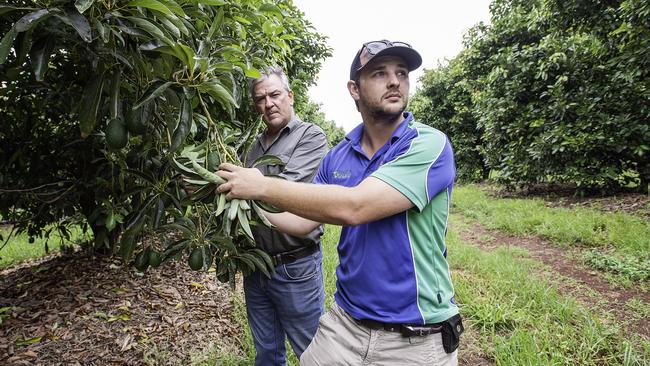
Conscious of their farming footprint, the business was the first horticulture enterprise to be accredited through both Fair Farms and Reef Certification, which demonstrate environmental stewardship and ethical employment practices.
Lachlan says they’ve also become officially carbon neutral, achieved by boosting carbon reserves in the soil through tree growth, mulching and pruning, as well as hay and compost to sequester carbon.
This healthy appetite for success saw the Donovans named grower of the year at the 2022 Hort Connections National Awards for Excellence.
JURGENS FAMILY
VJK PRODUCE
BOWEN, QLD
The Jurgens family approaches life and farming looking through a broad window, rather than a single lens.
It is how the clan balances their commercial horticulture business, the vertically integrated joint venture VJK Produce, with a sustainable farming philosophy.
Soil health is the glue that binds it together and the key focus on the 930 hectares under crop that Melita and Jamie Jurgens operate with children Jess, 23, and Jacob, 21, near Bowen in Far North Queensland.
Under their program, soil carbon and nutrients are organically increased through composting, crop rotation and recycling water, while the seedbed is a no-go zone for machinery.
“We were very focused on sustainable farming and ensuring the health of our farm was there for further generations. Not destroying our soil by over cultivating and using lots of chemicals. We’ve spent lots of time and energy on that,” Jamie says.
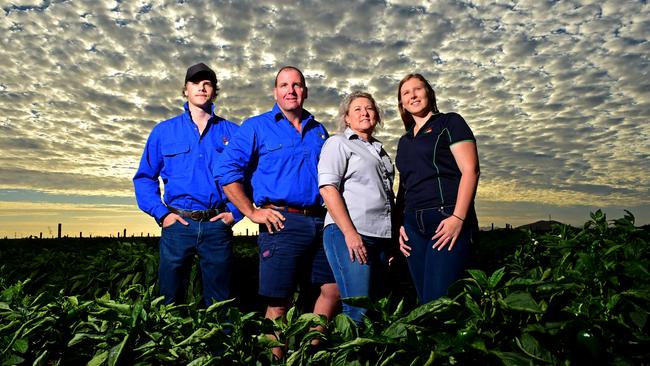
The family began composting to remineralise 15 years ago after discovering that some farms were lacking soil nutrients.
Their weapon of choice is mixing locally sourced sugar cane pulp, known as bagasse, with chicken manure from a nearby egg farm.
It takes two months of heating, watering, turning, curing and cooling to fully bring out the brew’s bacteria, fungi and minerals to be ready for application.
“We don’t use any chemical fertilisers, not even on our conventional crops. It’s not more cost effective but a lot more sustainable,” Jamie says.
The cropping program is also designed to feed the earth. Green beans are planted for their nitrogen-fixing powers, fibrous sweet corn roots add nutrients and deep-rooted pumpkins store carbon lower in the soil profile.
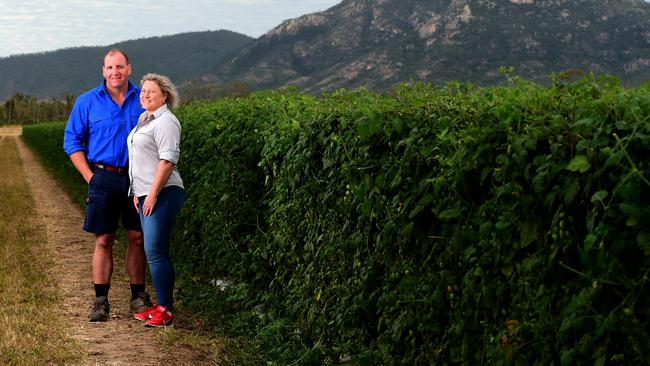
Long growth crops, such as tomatoes and capsicums, are planted weekly to keep sales ticking over. About 20 per cent of the annual harvest is organically certified.
VJK Produce is a joint venture between the Jurgens family and Kalfresh Vegetables, southwest of Brisbane, to ensure a continuous and broad supply of produce.
The Jurgens also pay sharp attention to what consumers want from the vegetable aisle. “We’re positive thinkers. We feel we’re quite an innovative business that keeps an eye on opportunities, whether it’s different products, packaging, or a process to add value,” Melita says.
MANNO FAMILY
QUALITY HARVEST
KUDLA, SA
Horticulture young gun Damien Manno knows how to turn over a new leaf – in more ways than one.
The 41-year-old from Kudla, on the northeast fringe of Adelaide, grew up on a vineyard and studied to be winemaker before embarking on a career change to produce “green” greens – herbs and vegetables that give carbon footprints the boot and pump the brakes on food miles.
In the space of just five years he has guided his Quality Harvest business from zero to hero, with his protected production area growing almost seven-fold from 300 square metres to 20,000 square metres, churning out about 20,000 bunches of basil and 15,000 bunches of Asian vegetables a week.
“The main reason for establishing a hydroponic growing operation was to produce a cleaner, better product,” Damien says.
“As consumer awareness on food production is growing, we wanted to bring a product that has fewer pesticides than other practices and to farm with minimal impact on the environment.”
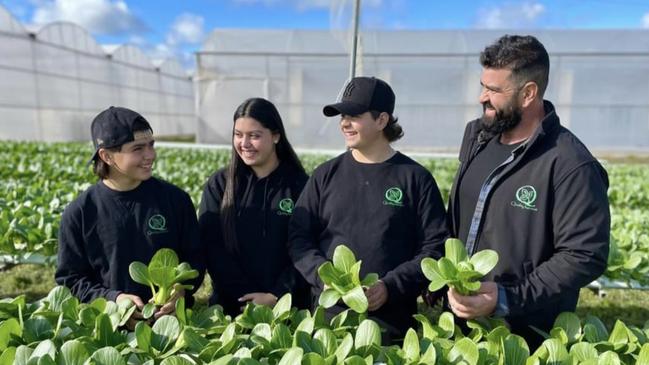
Quality Harvest operates seven days a week, 52 weeks a year and employs 12 staff.
As well as basil, it grows coriander, sage, tarragon and mint while Asian vegetables include bok choy and trials of gai larn.
Always seeking out new opportunities, Damien has also introduced a native range of herbs and greens. It was the result of significant research and development, in consultation with members of the indigenous community, as he sought to marry the range – native thyme, sea parsley, river mint and native basil – with growing consumer demand.
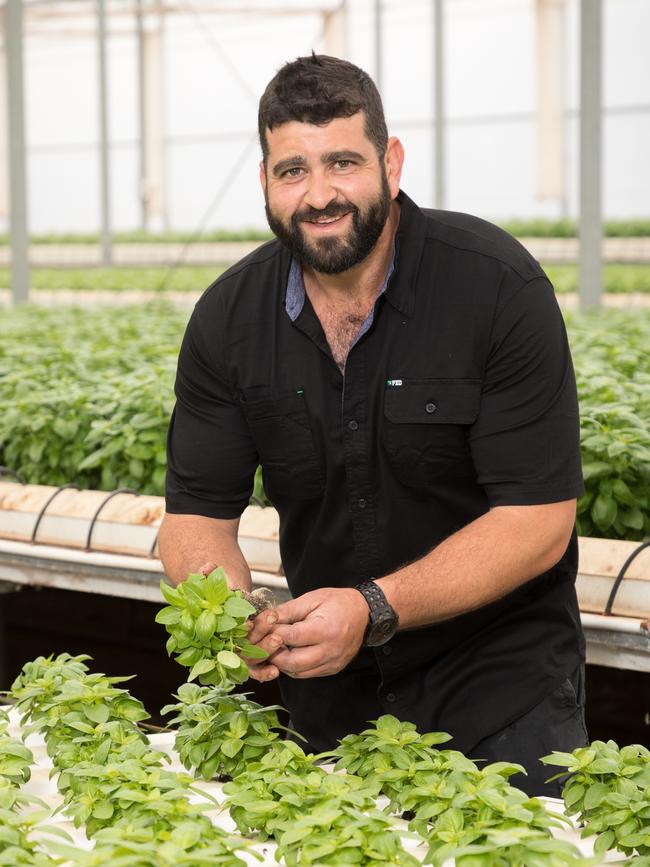
He has also developed a Herbalicious basil brand that provides basil to consumers with root stock intact for improved quality and longer shelf life and is on the cusp of introducing a prepacked range of traditional and native herbs.
The produce is sold through top wholesalers in Adelaide’s South Australian Produce Market as well high-end fruit and vegetable shops scattered throughout the state capital. Excess production is sometimes sold through the lucrative Melbourne Wholesale Market at Epping. A significant portion of the native lines are sold through Something Wild outlet in Adelaide’s Central Market, which retails native products from herbs to green to meat.
For his vision, Damien took out the prestigious Young Grower of the Year title at last year’s AusVeg national awards in Brisbane.



